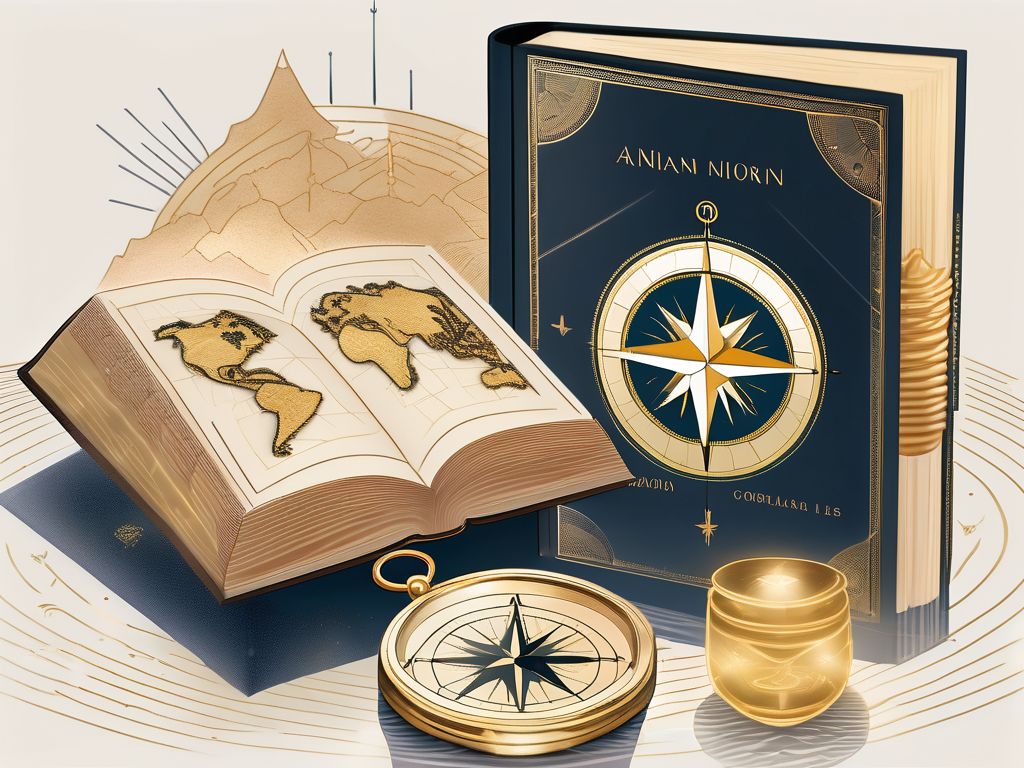The Book of Isaiah is one of the most important and influential texts in the Bible. It is a complex and rich collection of prophecies, historical accounts, and profound messages that have captivated readers for centuries. In this comprehensive guide, we will dive into the various aspects of this remarkable book, from its historical context to its major themes and characters. Whether you are a Bible scholar, a student of theology, or simply curious about the Book of Isaiah, this article will provide you with a detailed exploration of its contents.
Understanding the Historical Context of Isaiah
The historical context of the Book of Isaiah is crucial to understanding its significance and relevance. Isaiah lived during a turbulent period in ancient Israel’s history, marked by political upheaval, foreign invasions, and religious turmoil. As a prophet, Isaiah played a crucial role in shaping the destiny of his people, delivering messages of hope, warning, and divine intervention.
The Book of Isaiah covers a span of several centuries, encompassing the reigns of multiple kings and the profound changes that occurred during this time. It provides invaluable insights into the political, social, and religious climate of ancient Israel.
The Role of Isaiah in Ancient Israel
Isaiah held a prominent position as a prophet in ancient Israel. He was known for his boldness, conviction, and unwavering commitment to God’s message. Isaiah’s prophetic ministry extended over several decades, during which he witnessed the rise and fall of kings, the Assyrian invasion, and the exile of the Israelites.
Isaiah’s role as a prophet was not an easy one. He faced opposition from both the ruling elite and the general population. However, he remained steadfast in his mission to deliver God’s word to the people, even when it meant delivering messages of judgment and impending doom.
Isaiah’s prophecies often addressed the political and social issues of his time. He spoke out against corruption, injustice, and idolatry, calling the people to repentance and a return to God’s ways. His words resonated with the people, and his influence extended beyond his own time, as his prophecies were recorded and preserved for future generations.
Key Historical Events in the Book of Isaiah
The Book of Isaiah records numerous significant historical events that shaped the destiny of ancient Israel. These events include the downfall of the Northern Kingdom of Israel, the rise of the Assyrian Empire, the siege of Jerusalem, and the return of the exiled Israelites. These historical accounts provide important context for understanding the prophecies and messages conveyed by Isaiah.
One of the key events recorded in the Book of Isaiah is the fall of the Northern Kingdom of Israel to the Assyrians. This event marked a turning point in the history of Israel, as it led to the exile of the ten northern tribes and the loss of their identity as a nation. Isaiah warned the people of the impending destruction and called them to repentance, but his words went unheeded, and the kingdom fell.
The rise of the Assyrian Empire was another significant event during Isaiah’s time. The Assyrians were a powerful and ruthless nation, known for their military might and brutal conquests. Isaiah witnessed their invasion of Israel and the siege of Jerusalem, which brought immense suffering and devastation to the people.
Despite the bleak circumstances, Isaiah also delivered messages of hope and restoration. He prophesied about the coming of a righteous king, who would bring peace and justice to the land. These messianic prophecies offered comfort and reassurance to the people, reminding them that God had not abandoned them and that there was a future beyond the present turmoil.
The return of the exiled Israelites is another significant event recorded in the Book of Isaiah. After years of captivity in Babylon, a remnant of the Israelites was allowed to return to their homeland. Isaiah’s prophecies played a role in encouraging the exiles and giving them hope for a better future.
Overall, the historical context of Isaiah provides a rich tapestry of events, personalities, and divine intervention. It deepens our understanding of the book and helps us appreciate the profound impact Isaiah had on ancient Israel and the enduring relevance of his message.
The Structure and Composition of the Book of Isaiah
The Book of Isaiah, one of the most profound and influential books in the Old Testament, is a rich tapestry of divine revelation, historical accounts, and poetic expressions. It can be divided into three distinct parts, each with its own themes and literary styles, providing a comprehensive exploration of God’s message to His people.
Understanding the structure of the Book of Isaiah is crucial for comprehending the flow and purpose of Isaiah’s writings. By delving into the intricacies of each section, we can gain a deeper appreciation for the profound truths and timeless wisdom contained within.
The Three Parts of Isaiah
The Book of Isaiah can be divided into three main sections: First Isaiah (chapters 1-39), Second Isaiah (chapters 40-55), and Third Isaiah (chapters 56-66). Each section presents a unique historical context and focus, providing a comprehensive narrative of Israel’s relationship with God throughout different periods of their history.
In First Isaiah, we witness the prophet Isaiah’s ministry during the reigns of four kings of Judah: Uzziah, Jotham, Ahaz, and Hezekiah. This section addresses the impending judgment upon Judah due to their disobedience and idolatry, while also offering hope and restoration for the faithful remnant.
Second Isaiah, often referred to as the “Book of Consolation,” emerges during the Babylonian exile. In this section, Isaiah’s prophecies shift from impending judgment to messages of comfort, restoration, and the promise of a future Messiah. The powerful imagery and poetic language employed by Isaiah in this section captivate the reader, evoking a sense of hope and anticipation.
Lastly, Third Isaiah focuses on the period after the exile, when the Israelites returned to Jerusalem. This section addresses the challenges faced by the returning exiles, emphasizing the importance of true worship, justice, and righteousness. It also provides glimpses of the future glory of Jerusalem and the ultimate triumph of God’s kingdom.
Each section of Isaiah is characterized by its own unique historical context and focus, but they are all connected by overarching themes of redemption, restoration, and faith. Together, they form a cohesive narrative that reveals God’s unwavering love and faithfulness towards His people.
The Literary Styles in Isaiah
Isaiah, known as the “prince of the prophets,” employs a variety of literary styles to convey his messages effectively. His masterful use of language and imagery adds depth and beauty to his prophecies, making them memorable and impactful.
Throughout the Book of Isaiah, we encounter the poetic genius of the prophet. His poetic language not only enhances the aesthetic appeal of his writings but also serves as a powerful tool for conveying complex theological concepts and emotional depth. The rhythmic flow of his words and the vivid imagery he employs create a lasting impression on the reader’s mind and heart.
In addition to poetry, Isaiah utilizes prophetic oracles to deliver his messages. These oracles are divinely inspired declarations that reveal God’s plans, judgments, and promises. Through these oracles, Isaiah boldly proclaims God’s sovereignty and His desire for His people to turn back to Him.
Furthermore, Isaiah incorporates historical narratives into his writings, providing a contextual backdrop for his prophecies. These narratives offer insights into the political and social climate of the time, helping the reader understand the challenges faced by the people of Israel and the significance of Isaiah’s messages in their specific historical context.
The Book of Isaiah is a literary masterpiece that combines various styles and genres to convey its profound messages. It is a testament to the power of words and the transformative impact they can have on individuals and nations alike.
Major Themes and Messages in Isaiah
The Book of Isaiah is replete with major themes and messages that resonate with readers throughout history. One of the central themes is salvation, and Isaiah underscores the need for repentance and the promise of divine deliverance. This theme of salvation is interwoven with prophecies of a coming Messiah, who will bring hope and redemption to God’s people.
Isaiah’s words echo through the ages, reminding us of the importance of turning away from our sinful ways and seeking forgiveness. He speaks of a future where God’s people will be restored, their sins forgiven, and a new covenant established. These promises of deliverance provide comfort and encouragement to those who are facing hardships and challenges, assuring them that God’s love and mercy will prevail.
Furthermore, Isaiah’s prophecies extend beyond the immediate context of his time. They offer a glimpse into the future, revealing God’s plans and purposes for the world. Through his prophetic words, Isaiah foretells the fall of nations, the coming of a righteous ruler, and the ultimate triumph of God’s kingdom.
The Theme of Salvation in Isaiah
Isaiah repeatedly emphasizes the need for repentance and the hope of salvation. He calls upon the people of Israel to turn away from their wickedness and return to God. In doing so, they will find forgiveness and restoration. Isaiah’s message of salvation is not limited to the people of his time but extends to all generations, reminding us of the universal need for redemption.
Isaiah’s prophecies of salvation are filled with vivid imagery and powerful metaphors. He speaks of a time when the desert will bloom, the blind will see, and the oppressed will be set free. These poetic descriptions paint a picture of a world transformed by God’s grace and mercy, where justice and righteousness prevail.
Moreover, Isaiah’s message of salvation is intertwined with the promise of a coming Messiah. He foretells the birth of a child who will be called Immanuel, meaning “God with us.” This Messiah will bring hope and deliverance to God’s people, fulfilling the long-awaited prophecy of a savior.
The Prophecies of Isaiah
The Book of Isaiah contains numerous prophecies, many of which have been fulfilled throughout history. Isaiah’s words serve as a testament to the divine inspiration behind his message. His prophecies accurately predict the fall of nations, such as Babylon and Assyria, and the rise of new powers.
Isaiah also prophesies the coming of a righteous ruler, who will establish a kingdom of peace and justice. This ruler, often referred to as the “Branch” or the “Shoot,” is a symbol of hope and restoration. Isaiah’s prophecies regarding the Messiah find their fulfillment in the person of Jesus Christ, who embodies the qualities of a righteous ruler and brings salvation to all who believe in him.
Furthermore, Isaiah’s prophecies reveal God’s ultimate plan for the world. They speak of a time when all nations will come together in worship and obedience to God. Isaiah envisions a future where peace and harmony reign, and the knowledge of God covers the earth as the waters cover the sea.
In conclusion, the Book of Isaiah is a rich tapestry of themes and messages that continue to resonate with readers today. Its emphasis on salvation, repentance, and the coming of a Messiah offers hope and encouragement to all who seek God’s grace. Isaiah’s prophecies serve as a reminder of God’s faithfulness throughout history and his ultimate plan for the redemption of humanity.
The Characters and Figures in Isaiah
The Book of Isaiah introduces various characters and figures who play significant roles in the unfolding of God’s plan. These characters provide insight into the political, social, and religious dynamics of ancient Israel.
The Role of King Hezekiah in Isaiah
King Hezekiah is a central figure in the Book of Isaiah. He is portrayed as a righteous king who seeks God’s guidance and protection. Hezekiah’s reign coincides with a time of great peril for Jerusalem, and his faithfulness becomes a symbol of hope amidst the looming threat of invasion.
The Servant Songs and Their Significance
The Servant Songs in Isaiah refer to a figure known as the Servant of the Lord. These songs describe the servant’s suffering, obedience, and ultimate exaltation. Many scholars interpret these passages as a prophecy of the Messiah, who will bring salvation and redemption to all peoples.
The Book of Isaiah in Modern Interpretation
The Book of Isaiah continues to be highly relevant and influential in modern times. It has shaped both Christian theology and Jewish tradition, inspiring profound interpretations and theological reflections.
The Book of Isaiah in Christian Theology
Christian theologians have extensively studied and interpreted the Book of Isaiah. They see in Isaiah’s prophecies and promises the fulfillment of God’s plan through Jesus Christ. The Messianic prophecies found in Isaiah have been instrumental in shaping the understanding of Christ’s life, death, and resurrection.
The Book of Isaiah in Jewish Tradition
In Jewish tradition, Isaiah is revered as one of the greatest prophets. His messages of hope, justice, and divine intervention resonate with Jewish readers. The Book of Isaiah is often read during important Jewish festivals and has been a source of comfort and inspiration throughout history.
In conclusion, the Book of Isaiah is a remarkable and multifaceted text that holds immense value for believers and scholars alike. Understanding its historical context, structure, themes, and characters allows us to delve deeper into its profound messages. Whether we approach the Book of Isaiah from a religious or academic perspective, its timeless wisdom continues to speak to us, revealing God’s love, justice, and redemptive plan for humanity.












